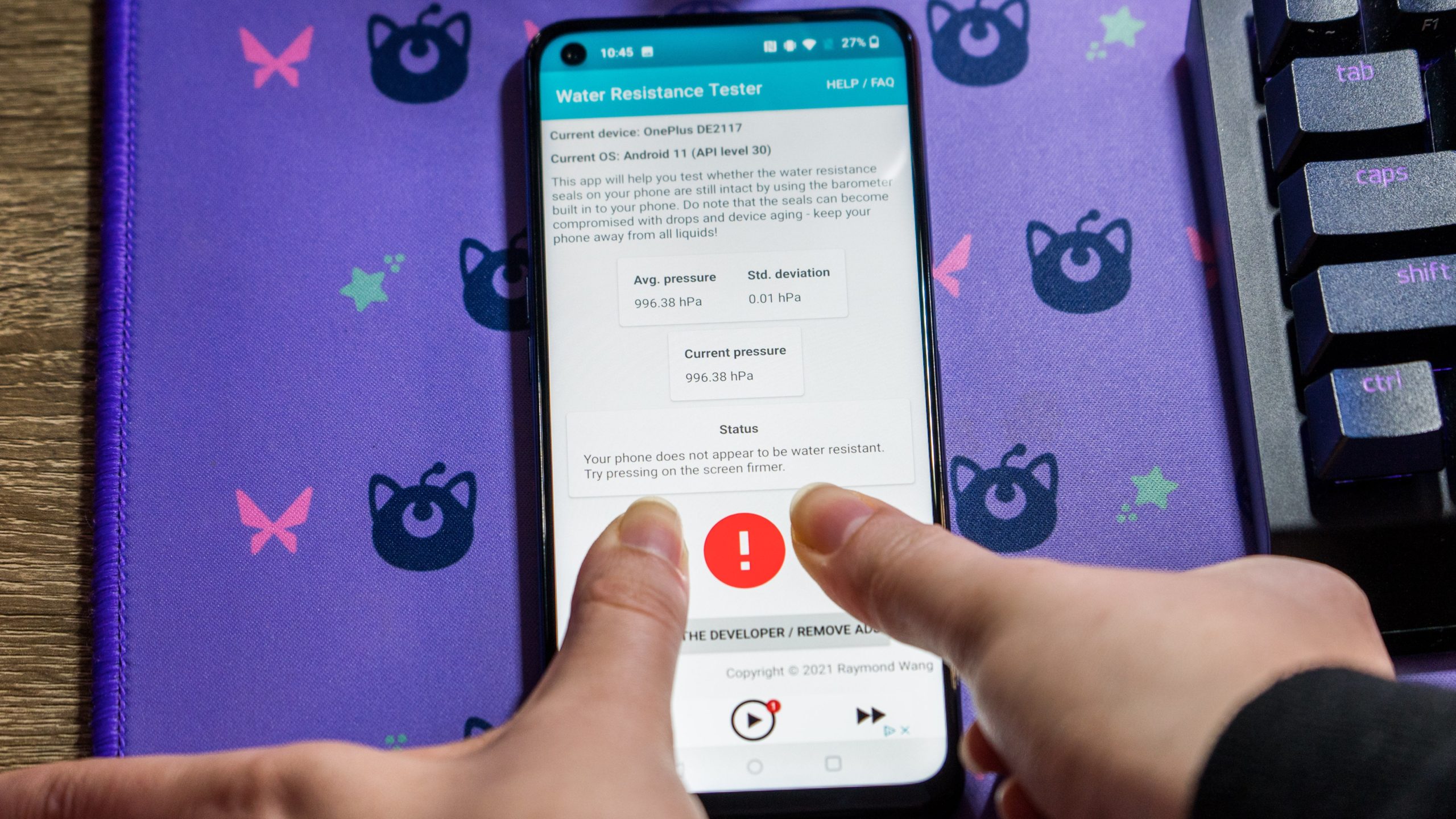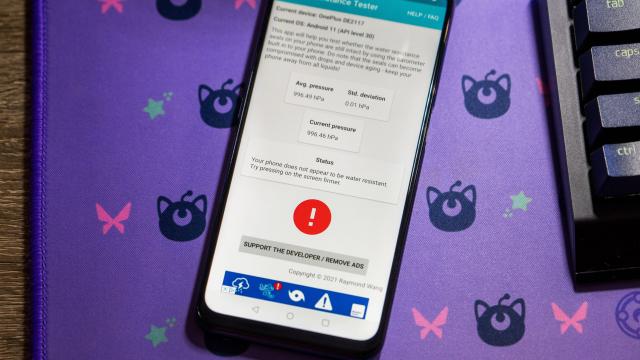Today I learned that you can test the water resistance of a smartphone without throwing it into a giant pool. All you need is a water resistance tester app, like the one that’s been making the rounds on Reddit.
The aptly named Water Resistance Tester app is available for Android devices in the Google Play Store. It tests your smartphone’s IP67 and IP68 water-resistance seals by way of the barometer built into your phone. Two Redditors in the Samsung community, where the post originated, confirmed and then deleted a note saying that the methodology is similar to how OEMs test the seal on their devices. We’ve reached out to Samsung to confirm whether that’s actually the case.
To start the test, place your phone on a solid, flat surface. Then, place your thumbs on the screen where indicated. Once you apply a bit of pressure, the test will start. The app will flash a green checkmark if everything seems as sealed as the day you took the phone out of the box. And if it’s not, you’ll have trouble starting the test, and then you’ll get a giant red exclamation mark to let you know your phone is not resistant to water. Android Police also notes that if you run the test with a popped-out SIM tray, the test will fail since there’s a giant gaping hole where water could theoretically seep in.
The barometer inside a smartphone measures relative air pressure around the device. Back when smartphones were just getting gussied up with premium features, the idea of a barometer inside such a small device seemed like a far-off ideal. Barometers are typically water-based or use a copper alloy solution that expands and contracts based on atmospheric pressure.
But that’s too mechanical for a smartphone. Instead, a digital barometer is used to do this testing. It’s a simple pressure-sensing transducer, often found in the dedicated GPS chip. It measures pressure in Pascals, which is what “hPa” stands for on the results of the Water Resistance Tester. Phone barometers are so powerful, you could even DIY your own scale if you wanted.
I tested the app with a OnePlus 9, which is IP68-rated for water resistance. I also tried it with the OnePlus N200 5G, which is not. In both instances, the app was accurate in pointing out the flagship OnePlus could handle water and the budget OnePlus can’t.

As you live and breathe with your smartphone in hand, the water pressure seals can become weaker over time. An app like this can help you assess a second-hand phone, for instance, to ensure its seals haven’t been compromised due to normal wear and tear.
It can also help inform you before approaching a seductive body of water. It’s summertime, and with the impending creep of climate change, at least there’s a way to test if your phone can handle the inevitable torrent of water that will come gushing through once the polar ice caps have completely melted. We’re headed for some rough times. Make sure your smartphone is capable.
Water Resistance Tester isn’t the first resistance-testing app to sprout up in the Play Store, but there are plenty of positive reviews to back it up, not to mention community feedback. The developer behind the Water Resistance Tester app, Ray W, makes no guarantees on the app’s efficacy. But it can be fun to try out. If you do get some utility out of it, be sure to tip the developer, which will also remove advertising.
